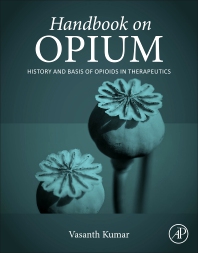Books in Life sciences
Books in Life sciences
Elsevier's Life Sciences collection helps researchers get comprehensive coverage and up-to-date information on the study of living organisms, their processes, and interrelationships, spanning disciplines like biology, genetics, and biochemistry, and addressing emerging trends such as genomics, biotechnology, and sustainability, essential for advancing knowledge and driving innovation in the field.
- 1st Edition
- February 11, 2022
- Wim Ceelen
- English
- Paperback9 7 8 0 1 2 8 2 4 2 9 7 1
- eBook9 7 8 0 1 2 8 2 4 2 9 8 8

The Lymphatic System in Colorectal Cancer
- 1st Edition
- Volume 167
- February 11, 2022
- Lorenzo Galluzzi + 1 more
- English
- Hardback9 7 8 0 3 2 3 8 5 5 0 1 3
- eBook9 7 8 0 3 2 3 8 5 5 0 2 0

MCB: CAR T Cells: Development, Characterization and Applications
- 1st Edition
- February 9, 2022
- Mehdi Toloo + 2 more
- English
- Paperback9 7 8 0 1 2 8 2 3 7 9 9 1
- eBook9 7 8 0 1 2 8 2 3 8 0 0 4

Multi-Objective Combinatorial Optimization Problems and Solution Methods
- 1st Edition
- February 9, 2022
- Diana Vaamonde + 2 more
- English
- Paperback9 7 8 0 1 2 8 1 8 3 0 9 0
- eBook9 7 8 0 1 2 8 1 8 3 1 0 6

Fertility, Pregnancy, and Wellness
- 1st Edition
- February 4, 2022
- Varun Bajaj + 1 more
- English
- Paperback9 7 8 0 3 2 3 9 1 1 9 7 9
- eBook9 7 8 0 3 2 3 9 1 4 1 2 3

Artificial Intelligence-Based Brain-Computer Interface
- 1st Edition
- January 30, 2022
- Seyed Mohammad Kazem Aghamir
- English
- Paperback9 7 8 0 3 2 3 9 9 8 8 4 0
- eBook9 7 8 0 3 2 3 9 8 3 9 7 6

Liquid Biopsy in Urogenital Cancers and its Clinical Utility
- 1st Edition
- Volume 101
- January 29, 2022
- English
- Hardback9 7 8 0 1 2 8 2 0 8 0 3 8
- eBook9 7 8 0 1 2 8 2 0 8 0 4 5

Lipids in Plants and Algae: From Fundamental Science to Industrial Applications
- 1st Edition
- Volume 153
- January 29, 2022
- English
- Hardback9 7 8 0 1 2 8 2 4 4 8 5 2
- eBook9 7 8 0 1 2 8 2 4 4 8 6 9

RAS: Past, Present, and Future
- 1st Edition
- January 29, 2022
- Vasanth Kumar
- English
- Paperback9 7 8 0 3 2 3 9 0 9 0 3 7
- eBook9 7 8 0 3 2 3 9 0 9 0 4 4

Handbook on Opium
- 1st Edition
- Volume 662
- January 28, 2022
- English
- Hardback9 7 8 0 3 2 3 9 0 7 3 5 4
- eBook9 7 8 0 3 2 3 9 0 7 3 6 1

Selenoprotein Structure and Function